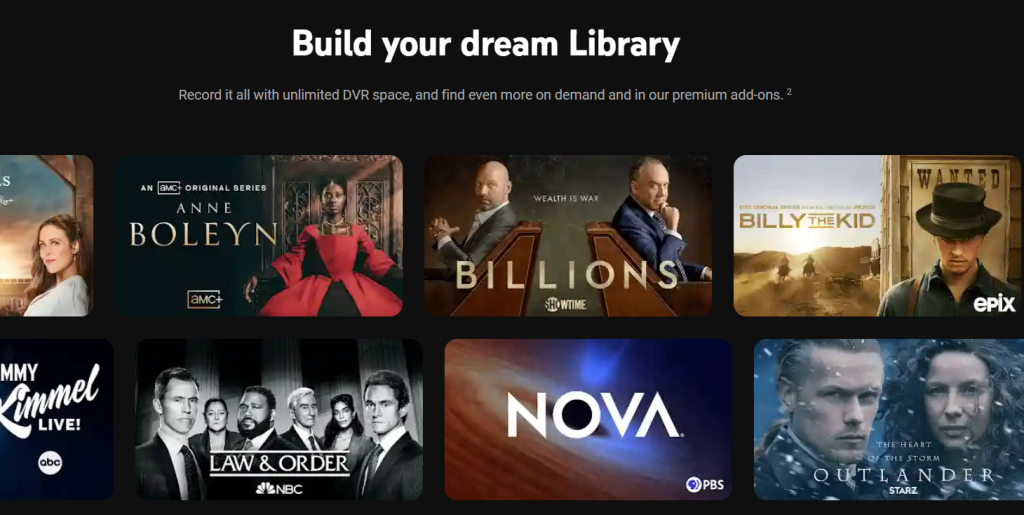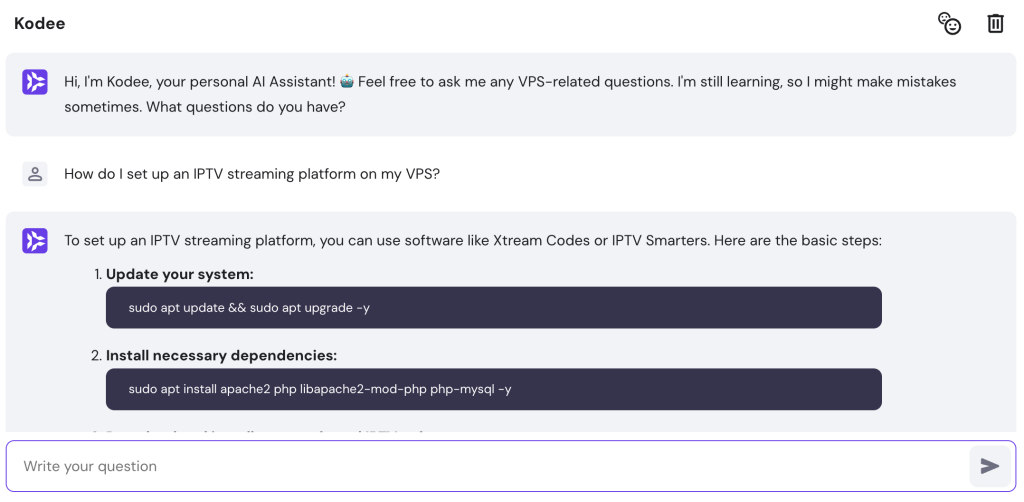How to Start an IPTV Business From Scratch and Build Your Own IPTV Streaming Server
Internet protocol TV (IPTV) delivers television programming via the internet instead of cable or satellite. It is popular due to its flexibility, quality, and two-way interactivity.
Popular IPTV solution providers like YouTube, AmazonTV, and Hulu have millions of active users. Due to the demand, establishing your own business can be a great way to make money online.
This article will explain how to start your IPTV business, from market analysis to building a loyal customer base. You will also learn how the protocol works and the components required for building the platform.
Download 74 ways to make money online
What Is IPTV?
IPTV is a protocol for delivering content to television via the Internet, enabling an on-demand viewing experience and two-way interaction. Due to its flexibility, it is more popular than traditional content delivery media like cable or satellite TV. It is also different from over-the-top services, operating on a closed network and requiring a specific decoder.
How Does IPTV Work?
Before getting into the steps, let’s discuss how an IPTV service works. It operates on a closed network, allowing only specific systems to connect to your server.
The server acts as the content storage and delivery system, broadcasting videos to clients using various software. We will explain more about the streaming infrastructure in the later section.
The recipient decodes the content into a supported signal using a set-top box or software. Since IPTV provides a front-end application, users can have a two-way interaction, such as choosing the show to watch and rewinding.
An IPTV commonly runs on a cable-based network infrastructure, making it a popular add-on service from an internet service provider. However, it can also use a wireless internet connection through Wi-Fi.
Benefits of Starting an IPTV Business
IPTV has several advantages over other similar businesses like over-the-top and cable TV. Here are some of them.
Wider Audience Reach
An IPTV service can reach both the OTT and cable TV audience bases. It is compatible with various devices, accessible using a set-top-box or media player app.
Unlike traditional TV, IPTV can also reach a global audience more easily since it is internet-based. However, different countries have distinct laws that might affect how you broadcast content.
Flexibility
IPTV service providers can choose different broadcasting methods, like on-demand or live streaming. The type of content also varies widely, covering TV shows, sports programs, movies, and others.
To generate revenue, business owners can also use different methods, such as subscriptions or pay-per-view. Moreover, IPTV’s two-way interaction capability enables viewers to watch video content without restrictions.
Scalability
IPTV is relatively easy to scale to accommodate the growing user base and content library. To set up the platform, you can rely on digital infrastructure like virtual private server (VPS) hosting.
If you want to integrate third-party services like a monitoring tool or payment gateway, you can do so by connecting the platform using an application programming interface (API).
How to Start an Internet Protocol Television Business
Now that we understand how the IPTV protocol works, let’s plan and set up the platform.
1. Research and Analyze the Market
Market analysis helps you understand target audience needs, letting you know if there is a new service you can offer. For example, a movie streaming IPTV business might be ideal if home cinema is on the rise.
The research process also involves getting to know your competitors and analyzing their strategies. This can help you identify what works and what other companies lack.
Researching the market also helps determine the ideal way to make money from your streaming service. For example, if you are offering an IPTV service for students, charge a lower price, offer a college plan, or provide a free trial.
2. Select the Right IPTV Model
There are five IPTV streaming models with different broadcasting methods. While it is possible to use all of them, we don’t recommend doing so because it will take a lot of time, resources, and effort.
Instead, pick one that users prefer and is popular based on your market research. To help you choose the right IPTV business model, consider these options:
- Video on-demand – offers content that users can watch anytime during their subscription period.
- Near video on-demand – broadcasts pay-per-view content for a limited time that changes regularly.
- TV on-demand – airs content like news or TV channels, which users can enjoy anytime.
- Live broadcast – streams live video for a specific time, but users can’t rewind or rewatch it afterward.
- Time-shifted TV – records previously aired programs, allowing users to rewatch them.
These IPTV models work similarly, but the setups and software components differ. For this tutorial, we will explain the video-on-demand IPTV model since it is the most versatile and popular option.
3. Understand Legal and Licensing Requirements
Understanding the legal and licensing requirements is crucial for a broadcasting business. It ensures you comply with laws and helps you avoid liabilities.
Depending on the region, operating your own IPTV service might require a specific broadcasting license. You’ll also need to comply with content licensing agreements from the producer or distributor.
Some production companies might request upfront payments, while others may ask for recurring royalties. They may also have specific requirements for content usage.
We recommend consulting with legal experts to review the licenses. They will help you negotiate the agreements, make sure you comply with laws, and create a risk management plan.
4. Source Content and Channels
You can outsource content from production houses, distributors, creators, or other IPTV stations. Alternatively, you can create original shows, but doing so will require more time and effort.
Moreover, you must promote your original content to attract viewers. Despite the drawbacks, original content is ideal if you operate in a specific niche with limited content providers.
Regardless, ensure you offer plenty of content options. This helps prevent audiences from getting bored, which might cause them to switch to another platform.

Since storing too much content will consume a lot of storage space, choose carefully based on viewers’ preferences. We also recommend compressing the video files to reduce the size while maintaining optimal quality.
Remember to categorize your content using different tags, such as genre or type. This will simplify management and help viewers find a specific video more easily.
5. Set Up Technology and Infrastructure
Now that the business plan is finalized, let’s get into the technical aspect. This section will cover IPTV system components and how to set up the streaming server.
Virtual Private Server
A VPS is where you will host your IPTV service and store the content. While you can use a personal computer, a hosting plan from a provider like Hostinger is more cost-efficient and reliable.
Our built-in VPS AI assistant, named Kodee, and intuitive hPanel control panel make the setup process simpler. If you encounter difficulties, Hostinger’s Customer Success team is available 24/7 to help resolve the issue.

For a multicast stream that supports multiple clients at the same time, we recommend a powerful plan like KVM 8 for optimal performance. You can also start with lower plans like KVM 4 and upgrade anytime.

Web Server and Broadcasting Software
To allow your VPS to process client requests, install a web server like NGINX. Then, configure decoding software and streaming protocols to deliver video content via the internet.
You can combine multiple streaming tools. For example, set up FFmpeg as the video compressor and encoder. Then, install the real-time messaging protocol (RTMP) module in NGINX to enable data transmission.
Alternatively, you can use an all-in-one IPTV streaming server software solution like ErsatzTV. It includes an encoder and a media file management panel to simplify the process. However, it might be unreliable since it is still under an active update.
Another way to set up an IPTV platform is to install a content management system (CMS) like WordPress and add a plugin for streaming content. This method is simpler but not as flexible since the features are pre-developed.
Content Delivery Network (CDN)
A CDN is a network of caching servers spread across multiple geographical areas. It lets clients fetch content stored closest to their locations, reducing latency and improving stream responsiveness.
While commonly used for caching static content like images, a CDN also benefits video streaming. It stores segments of your content in real-time and offloads traffic from the main host to maintain stability.
There are various content delivery networks, with Cloudflare being the most popular. It offers a free plan, which we recommend if you are just starting an IPTV business.
6. Market and Promote Your IPTV Business
Once your IPTV streaming platform is online, create a marketing strategy to promote your business and attract viewers.
Start by defining your goals, like the target number of viewers or total billings. Make sure they are specific, measurable, and actionable to simplify evaluation.
Now, define your promotion channels – social media, online ads, or blog content. We recommend using multiple mediums since they suit different customers.
For example, ads are effective for attracting paying customers but add more business expenses. Meanwhile, newsletter email marketing is suitable for nurturing interested users into becoming paying subscribers.
7. Build a Customer Base
After your streaming business starts attracting customers, optimize user experience to retain them.
For example, offer different subscription options to cater to user preferences. In addition, provide perks that improve user experience, like 4K streaming, ad-free viewing, or a free set-top-box rent.

Developing an intuitive user interface also helps retain customers. If viewers can easily use your IPTV platform, they are more likely to stay. To do so, follow the web design best practices and include features that improve usability, like a search bar.
Lastly, offer reliable customer service to maintain your IPTV subscribers’ trust. Ideally, users should be able to contact you via different mediums, like email, live chat, and telephone.
Tips for Launching a Successful IPTV Business
In addition to proper planning, take note of these tips to ensure your IPTV business’s success.
Diversify Content Library
Aside from giving customers more options, expanding your content library helps reach a wider audience. For example, offering a live broadcast on top of on-demand content helps attract users who prefer real-time streaming.
You can also include content from different niches or genres. However, only acquire shows that fit your audience preferences to maximize return on investment.
Maintain Quality and Infrastructure
Ensuring optimal content quality and reliable infrastructure is essential for user satisfaction. If viewers encounter poor video quality, buffering, and unresponsiveness, they are more likely to cancel their subscriptions.
Use a reliable server and network to maintain your IPTV platform performance. If you start experiencing unresponsiveness, upgrade to a more powerful VPS like Hostinger’s KVM 8 and set up a load balancer.
Analyze Data and Optimize Strategy
Track your service’s conversion rates, number of viewers, churn rates, and revenue. This data will help you objectively assess your IPTV business strategies and identify areas for improvement.
Regularly evaluating your IPTV business model is especially important since industry and customer preferences change. In addition, it keeps your service competitive since other providers will likely improve their marketing strategies regularly too.
Conclusion
Due to its rising popularity, starting an IPTV business is a great way to earn money online. Begin by researching and analyzing the market to identify what new services you can offer.
Based on the user preferences, select an IPTV model, like on-demand or live streaming. Then, learn about the legal requirements for acquiring and broadcasting content. We recommend consulting with experts to make the process easier.
Once you understand the licensing requirements, get content from TV stations or production houses. Then, set up your IPTV infrastructure using Hostinger VPS, which comes with various features to help you simplify the process.
To attract viewers, promote your IPTV service on multiple platforms like email and social media. Build a user-friendly interface and offer reliable customer service, which is crucial for establishing a strong user base.
How to Start an IPTV Business FAQ
In this section, we will answer several commonly asked questions about starting an IPTV business.
What Equipment Do I Need to Start an IPTV Business?
To start an IPTV business, you need a server to host your platform, a media player, a front-end application, and a set-top box to play the media on your TV. Complementary components include a CDN, which helps to improve streaming performance.
How Can I Obtain Content to Offer on My IPTV Service?
To acquire content for your service, contact IPTV channels, production houses, creators, or distributors. To simplify the task, we recommend consulting with legal experts. You can also create original content if the options are limited.
What Are the Potential Revenue Streams for an IPTV Business?
There are different ways to monetize your streamed IPTV content. The most common method is offering a subscription to allow users to access your content library for a specific time. Alternatively, you can include ads or sponsors to monetize free content.
How Can I Ensure a Reliable Streaming Experience for My Customers?
To ensure a reliable IPTV service, use a powerful VPS hosting service with robust hardware and network infrastructure, like Hostinger. Also, consider setting up a CDN to help offload traffic from your host and reduce latency.


Comments
December 23 2024
Do you support on setting up for Iptv business? Guide how to set it up. What I would need. To set up how much it will cost if you get back to me let me know please thank you
January 02 2025
Hello, We don't provide specific support for setting up an IPTV business, but you can definitely use VPS hosting for such projects :)